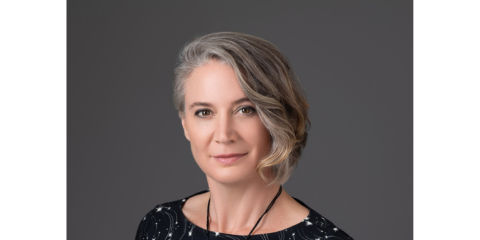Nieuws
Categorie | evenementen
Jessica Dempsey (ASTRON): Quantum needs to push equality and sustainability
Quantum technology. For many people, it is a vague concept. You sometimes read about it, hear about in a conversation or when you binge The Big Bang Theory. But what it is and what it means remains a question mark. This makes sense, because most applications of quantum technology are still in the research phase, although there are already promising results in the field of sensors, for example. In this series, we let the speakers of Connect 2024 talk about the theme of the event: Quantum technology. What is their view on the impact of Quantum technology?
Jessica Dempsey studied both theatre & film science and astrophysics at the University of New South Wales in Sydney, Australia. She was a professional actress until her early twenties, but a research internship in Antarctica made her lose her heart to telescopes. Dempsey joined the East Asian Observatory in Hawaii as an instrument scientist in 2007 and worked her way up to head of operations and finally deputy director. On 1 May 2022, she was appointed director of the Dutch NWO Institute ASTRON, stationed in Dwingeloo.
Technology needs to be more inclusive
When asked about how she connects to Connect.frl and the theme of this year’s edition – Quantum technology – Jessica Dempsey first points out that one of her main vocations, apart from astronomy, is the ongoing journey to stimulate equality in science. “There’s a slight connection with Quantum technology”, she states, “but my first concern is to create a healthy, balanced and inclusive workplace at ASTRON and in science in general. Opposed to sectors like medicine and law, we see the number of women in science go down. This is worrying.” In a recent article in De Volkskrant, Jessica explains that you need a magic 40% of any demographic group, to establish a self-sufficient system. “In science we’re moving away from that number. It is a difficult environment for women to last in. But studies show that an inclusive workplace performs better. It is a healthier place to work. And you double your potential workforce. That is my first message to participants of Connect.frl: make technology an inclusive place to work. Make working in technology not just about facts and results, but also about understanding, appreciation and acceptation of differences.” It is no coincidence that Jessica is creating attention for equality. She is heading ASTRON, one of the world’s leading centers for radio astronomy. With a growing workforce. “Investments in radio astronomy are growing. We are building new, more powerful telescopes that require more engineers and scientists. We need to create more possibilities for women to work in these kind of jobs. And we need leaders, also, or especially, male leaders, to facilitate that.”
Societal contribution
The growing investments in astronomy and larger telescopes also mean a lot more data that needs to be processed. Jessica: “We have a huge data problem coming up. We know that current information technology cannot process the data that will be generated in the future. Quantum computing is required to tackle this problem. 10 years from now, we will be a user of quantum computing, I’m sure.” ASTRON is not experimenting with quantum technology at the moment. According to Jessica, these kind of developments, also require people with the right technical and scientific skills. “For us it is hard to find these people. As a scientific institution we are not able to compete with the salaries of large IT-companies. However, I see a generation coming up that is not just interested in salary or benefits. They see that there’s too much at stake in the world to be selfish in choosing a job. They also look at how a company contributes to society.”
A good thing, then, that radio astronomy is becoming more and more relevant to society. Jessica: “In the past radio astronomy was mainly inspirational. This has changed. We have become very close to major societal developments. For instance: Wi-Fi was first conceived here at Dwingeloo. With telescopes we can monitor how fluctuations of the sun may harm satellite communications. Just to name a few. Green computing will be one of the next developments that needs be prioritized. Our carbon and energy footprints are beyond what we can afford,” Jessica says. “With quantum computing coming up, we know that data processing will require more and more energy. The development of quantum technology needs to be connected to these societal developments. It needs to push and catalyze the movement towards a sustainable future, and at the same time, also create and stimulate more equality, especially in science and technology.”